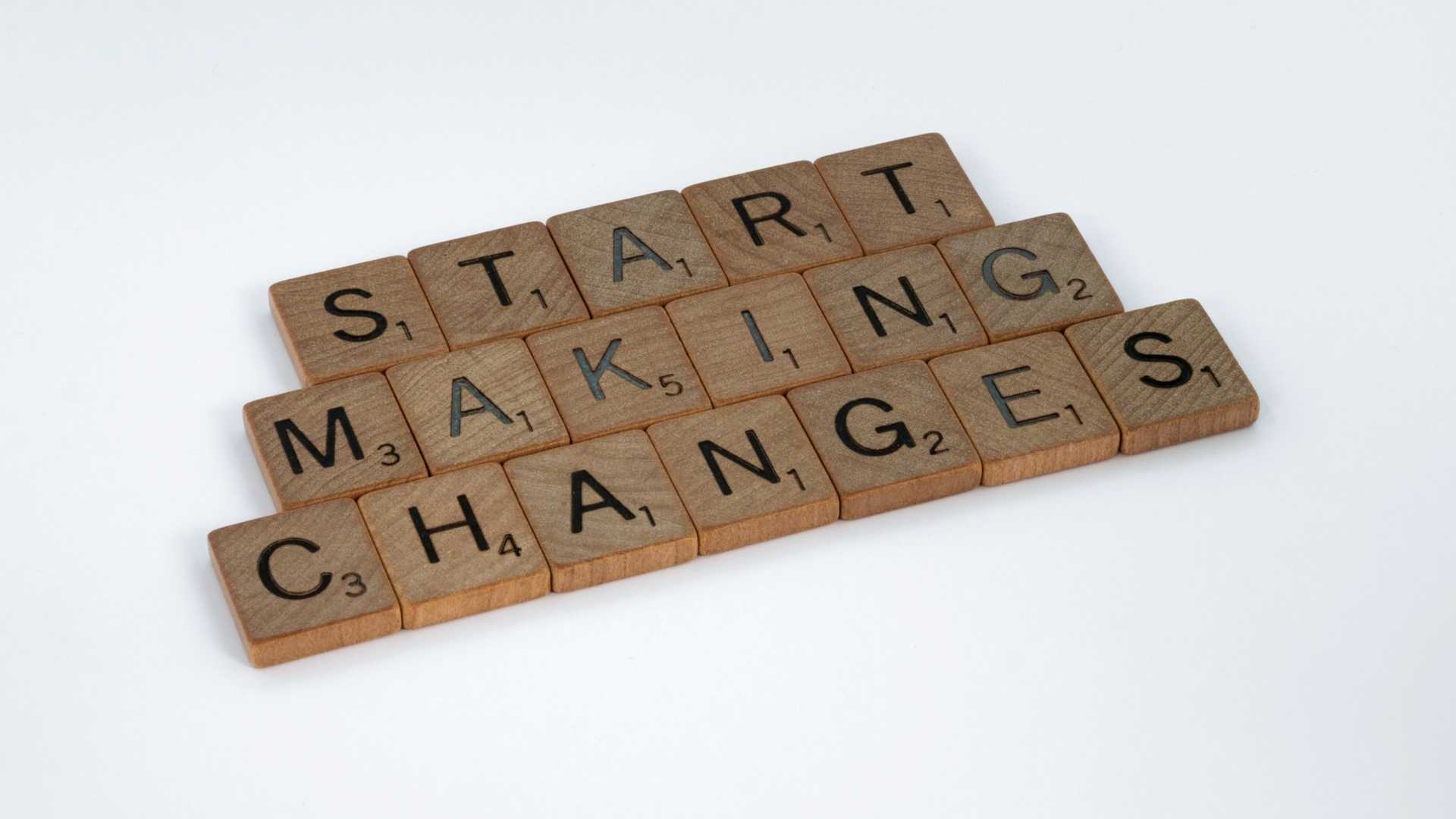What Exactly is Calorie Planning?

Photo by: Brett Jordan
Hello and welcome!
We started this website with one goal - to share what we have learned about losing fat and gaining muscle over 15 years of trial and error.
Whether you’re looking to bulk up or trim down, one strategy will practically guarantee your success. And that strategy is Calorie Planning.
For our first post, it only makes sense that we talk about what calorie planning is and why it matters.
Is Calorie Planning Like Counting Calories?
No. It’s way different!
When most people think about tracking calories - they think about counting calories.
For example, you might come up with a daily calorie goal like 1200, 1500, or 2000 calories.
This number usually comes from a friend, a family member, a fad diet, a generic chart, or an online calculator.
Throughout your day - you try to keep track of how many more calories you’re allowed to eat.
You may track calorie consumption in your head, in a notebook, or in an app.
Maybe it works well for a while, but you begin feeling a little overwhelmed.
Constantly checking the nutrition label for every food you want to eat can be exhausting.
You may feel like you can’t eat enough food to feel satisfied. Frustration sets in when the foods you want to eat quickly blow up your calorie budget.
The point is - counting calories can quickly lead to somewhat neurotic behavior and become unsustainable. There is a better way!
How is Calorie Planning Different?
Calorie Planning is a science-based approach to changing your body composition.
With calorie planning:
- You perform simple calculations to reasonably estimate the number of calories your body needs to meet your specific goals.
- You plan most of the meals you will eat in advance.
- You prepare portions or entire meals ahead of time as well.
- You incorporate the principles of flexible dieting - which means you don’t restrict yourself from eating foods you enjoy. Instead, you include them in your plan.
- You make slight adjustments based on documented progress.
Whether you’re trying to lose weight, gain muscle, or make better food choices - calorie planning eliminates the stress and anxiety often associated with proper nutrition.
What Are Some Benefits of Calorie Planning?
1. Calorie Planning is Science-Based
Calorie planning is based on three major principles.
The first principle is the law of energy balance.
In the weight loss world, you might’ve heard the expression “calories in, calories out.”
The idea is simple. To lose weight - you have to consume (calories in) fewer calories than you expend (calories out). To gain weight, reverse that.
It may seem oversimplified, but it is undeniably true and is the most critical factor in fat loss and weight control.
You can’t take in more calories than you burn and expect to achieve sustained changes in body composition - the amount of fat vs. muscle on your body.
The second principle is macronutrient ratio.
While calories are king - the number of calories you consume from protein, carbohydrates, and fat makes a big difference.
Every gram of protein and carbs is about four calories.
Every gram of fat is about nine calories.
The macronutrient ratio you consume affects your overall progress and makes a massive difference in how you feel in terms of mood and energy level.
The third principle is nutrition quality.
You could lose weight by eating nothing but cheeseburgers and pizza. Remember - calories in, calories out.
However, that would be ridiculously unhealthy and make you feel like shit.
A much better approach is to incorporate the principles of flexible dieting.
With flexible dieting, you consume a balanced mix of high-quality protein, fruits, grains, vegetables, and fats about 80% of the time and reserve 10-20% of your overall calorie intake for anything you want.
With proper calorie planning, you can still eat what you enjoy AND achieve your goals. Doesn’t sound so bad, right?
Calorie intake needs and optimal macronutrient ratios are highly individual and based on many factors. We’ll dive deeper into determining your calorie, macronutrient, and nutrition requirements in some upcoming posts.
2. Calorie Planning Reduces Stress and Anxiety
Calorie planning is highly adaptable to your lifestyle and includes food choices you enjoy. It is not a rigid, one-size-fits-all approach.
With calorie planning, you reduce or eliminate most guesswork about what to eat and how much.
You don’t get bogged down by tracking nutrition labels. And you don’t end up starving or splurging at the end of the day just to make your calorie budget work out.
A calm comfort starts to accompany you throughout the day because you know the proper meals are waiting for you. You know you’re on track to achieve your goals!
You can use calorie planning in conjunction with calorie tracking too. Things don’t always go according to plan. Sometimes you may need to adapt on the fly. But that’s okay.
After you’ve established a plan that works for you, it’s easy to adjust when urgent matters arise.
3. Calorie Planning is Simple
Having all the information you need for effective meal planning only takes a little upfront work.
Doing anything new will take a little time, patience, and practice. But you will feel so much better knowing exactly what you are doing and why.
Going to a bbq this weekend? Plan it. Want some mangos today? Plan it.
Once you have a better understanding of your goals and what your body needs - it’s easy to adjust, add, or remove meals or individual ingredients to achieve your calorie and macronutrient targets.
It’s easy to stay on track because consistency is baked into the process. As you monitor changes to your body composition - you adjust your calorie plan accordingly.
Using real data combined with how your body feels will inform your decisions and help you fine-tune what works best for you.
4. Calorie Planning Creates Stability
Sometimes you are not going to stick to your plan. You’re going to go on vacation, attend a pot luck dinner, or have an unplanned reward meal. And that’s okay.
That doesn’t mean you have to scrap all your goals and start over. Instead, having a solid calorie plan in place gives you some solid ground to return to when you have a slight detour.
Calorie planning works great with planning reward meals that you enjoy. You can still enjoy the food you love while avoiding splurging that could wipe out your results for the whole week!
It’s difficult to remember what works over several weeks. With calorie planning, you monitor progress toward your goals and make minor adjustments as you go.
Fortunately, there are no reactionary changes or guilt from minor setbacks. Instead, you create a stable approach that allows you to succeed over the long term.
With calorie planning, you create a clear target.
You only lose if you repetitively miss the target more than you hit it.
When you hit the mark consistently and only miss once in a while - you still win!
Final Thoughts
The health and wellness industry is worth over $4 trillion and continues to explode globally.
Most products and services are designed to make you believe you have some sort of problem that only their solution can solve.
The truth is that anybody can significantly alter their lifestyle and body composition with a handful of good decisions.
Here’s the big mystery behind fat loss.
- Eat fewer calories than you burn.
- Consume natural, whole foods 80-90% of the time.
- Allow for indulgences you enjoy.
- Exercise a few times per week - anything you enjoy will work.
- Don’t smoke or use alcohol.
- Get plenty of rest.
Do these things - and you’re in the top tier of healthy humans on this planet!
Arming yourself with a little bit of knowledge about how your body works is much more effective than buying into fad diets and marketing gimmicks.
We will continue developing content that dives deeper into these simple truths.
That's what this website is all about - providing information and resources to help you achieve your individual goals through calorie planning.
Please let us know if you have any questions. We’re here to help!
Thank you for your time.
Take care!

